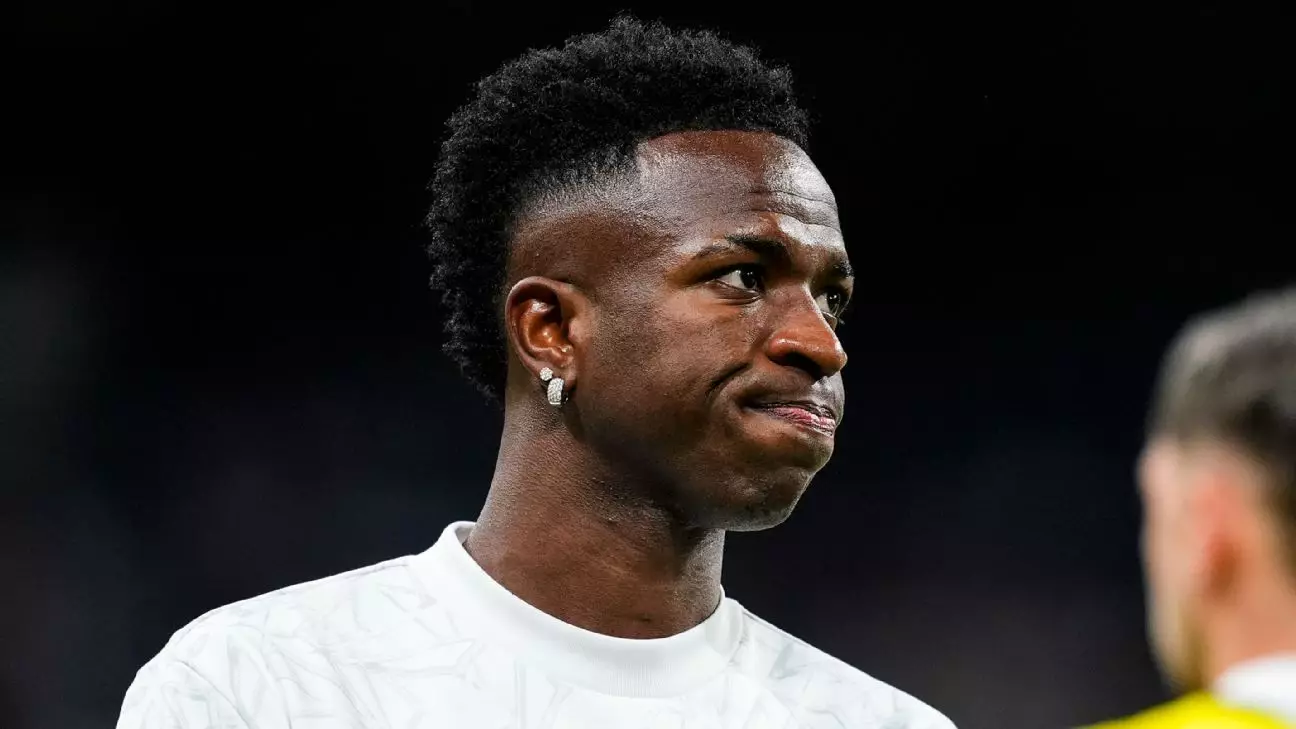Vinícius Júnior, the Brazilian forward for Real Madrid, alongside several of his teammates, opted out of attending the prestigious Ballon d’Or ceremony held in Paris. This decision was fueled by the announcement that Manchester City midfielder Rodri would be the recipient of the award for 2024. Despite a remarkable season where Júnior played a pivotal role in securing La Liga and Champions League titles, he found himself overshadowed in a key moment of recognition. Such an absence highlights the ongoing discourse surrounding the criteria for awarding football’s highest individual honors, raising questions about fairness and recognition in competitive sports.
The decision by Júnior and his team to boycott the ceremony is laden with implications. Real Madrid’s internal sentiment, described by sources as viewing the situation as “unfair” and “a disgrace,” underscores a larger sentiment of betrayal among the players and the club itself. The protest against the Ballon d’Or is being interpreted as a direct statement against what they perceive to be a “historic robbery.” Such a strong reaction from one of the top European clubs shows how personal and collective pride can influence decisions in an already emotionally charged environment.
Last season, Vinícius Júnior truly shone, netting 15 goals in La Liga and contributing six goals in the Champions League, including pivotal strikes against formidable opponents such as Bayern Munich and Borussia Dortmund. His accomplishments made him a leading contender for the 2024 Ballon d’Or title, suggesting that his absence from the ceremony is not merely a rejection of the event, but rather a symbol of the frustrations of a player who feels deserving of the highest honors in football. Carlo Ancelotti’s prediction that Júnior would win the award emphasizes the support he has within the club, and many within the football community echoed similar sentiments.
The ongoing conversation around the Ballon d’Or highlights larger issues of recognition within the footballing world. Historically, some players are favored over others based on a multitude of subjective preferences, ultimately overshadowing stellar performances. This year was no exception, as Júnior’s achievements were overlooked in favor of Rodri, who, while also deserving, represented a narrative driven by club success in the Premier League and international triumphs with Spain at Euro 2024. The tension between club loyalty and the recognition of individual brilliance continues to spark debate among fans and experts alike.
Vinícius Júnior’s bold stance at the Ballon d’Or may serve as a turning point in his career and the narrative surrounding individual awards in football. His talents and contributions to Real Madrid undeniably set a high benchmark for future seasons. The absence from such a significant ceremony may motivate Júnior not just to prove doubters wrong, but to push for a recognition system that more accurately reflects the caliber of performance across the sport. As he progresses through his career, the implications of this moment will resonate, potentially paving the way for a more just approach to honoring exceptional talent in the world of football.

